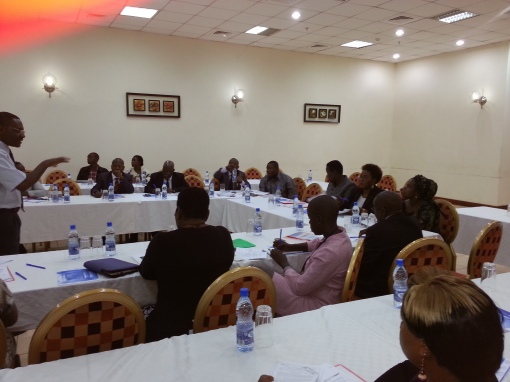The HIV Prevention and Management Law is a double-edged sword that threatens to impair Uganda’s positive progress in reducing HIV (over the decades) and to play into the hands of those who seek to stigmatize people living with HIV.
I have never been more disappointed in the parliament of Uganda. Some people say that being an MP is the lowest job – NOT in terms of pay, in terms of work done and results.
Parliament has become a house where political interests are fronted and these parliamentarians forget that they represent the people, and that they legislate for the people.
When the anti-homosexuality bill was presented before parliament, politicians said that it as a foreign-induced problem or a habit influenced by the western culture. Once this had been established, the solution to homosexuality became very simple – crimininalize it and that will be the last we hear of homosexuality.
As far as I know, homosexuality has been around (Uganda) for decades, perhaps centuries. In Uganda, homosexuality has been highly pronounced in prisons, single sex schools and very recently in churches. Of course the prison wardens, teachers and religious leaders have always disregarded these allegations – claiming that they are unfounded rumors aimed at tarnishing their reputation.
In fact, we have even seen more bizarre occurrences in different parts of Uganda – men having sex with cows, donkeys, and goats – thanks to the restless media!
Last year, a very prominent priest, Fr. Musaala wrote an open letter to the Catholic church. In his letter, he noted that homosexuality (or call it men having sex with men/ boys) was on the rise among priests and that perhaps its time to consider allowing Reverend Fathers to lawfully get married. He also noted that many Catholic priests were indulging in fornication.
I must say that I was very disappointed in the Catholic Church’s reaction to this letter – they threatened, harassed, censored and even dismissed Fr. Musaala. Why? Catholics are Christians. Christians listen, forgive and try to solve problems – they do NOT run away from problems. At least that’s what the Bible says.
Now, I am literally a Catholic because my father is a member of that Church. So, spare me your Reverend Fathers are NOT allowed to marry and they know it, they took oath, extra – because I already know it.
What I don’t know is why Christians choose to be so heartless.
But, that is NOT the real story. The real story is, many Ugandans have failed to understand the difference between culture and conservativeness.
When we claim that homosexuality is induced by the west and we hurriedly introduce a law to criminalize it, we are being conservative.
We should be mature enough to understand that criminalizing behaviour does NOT solve the problem but drives behaviour underground. We can NOT look at the law as a silver/ even gold bullet to solve even the smallest of our challenges or “problems”.
This afternoon, Parliament of Uganda passed the contentious HIV Prevention and Management Bill. This law criminalizes attempted (clause 39) and intentional transmission (clause 41) of HIV among other things.
The HIV Prevention and Management Law is a double-edged sword that threatens to impair Uganda’s positive progress in reducing HIV (over the decades) and to play into the hands of those who seek to stigmatize people living with HIV.
I totally understand that the HIV challenge has been a round for decades and that HIV is one of the leading killer diseases in Uganda and the African continent at large. Question remains, given what we (Ugandans) know about HIV, why is the prevalence still very high in Uganda?
HIV prevalence (estimated at 7.3%) remains very high in fishing villages, among the youth and interesting among married couples in Uganda. This is a behaviour issue. I probably dont have to iterate that majority of the people who transmit HIV are not aware of their own status and the same applies to those who get infected.
May I remind you that only 35% of Ugandans know their HIV status! With the HIV law in place, we are likely to see reduction in number of people who voluntarily take the HIV test.
Technical experts rejected the contentious clauses in the HIV Bill since 2010 and warned the Members of Parliament that if this bill is passed, it will have dire consequences on the HIV struggle. Experts from Uganda AIDS Commission, Ministry of Health and other prominent Ugandan scientists/researchers proved their arguments to the members of parliament.
I attended a bunch of meetings where MPs interfaced with these experts and dozens of members of parliament understood consequences of such a law. In fact, some of these MPs were against this legislation. This afternoon the MPs decided to ignore the evidence and guidance from public health experts and key stakeholders.
Passing of this law proves the notion that – the lowest job in Uganda is being a Member of Parliament. What are we (Ugandans) going to do about this? Are we going to allow these “no-brainers” to determine the fate of our country?
You might also want to read:




